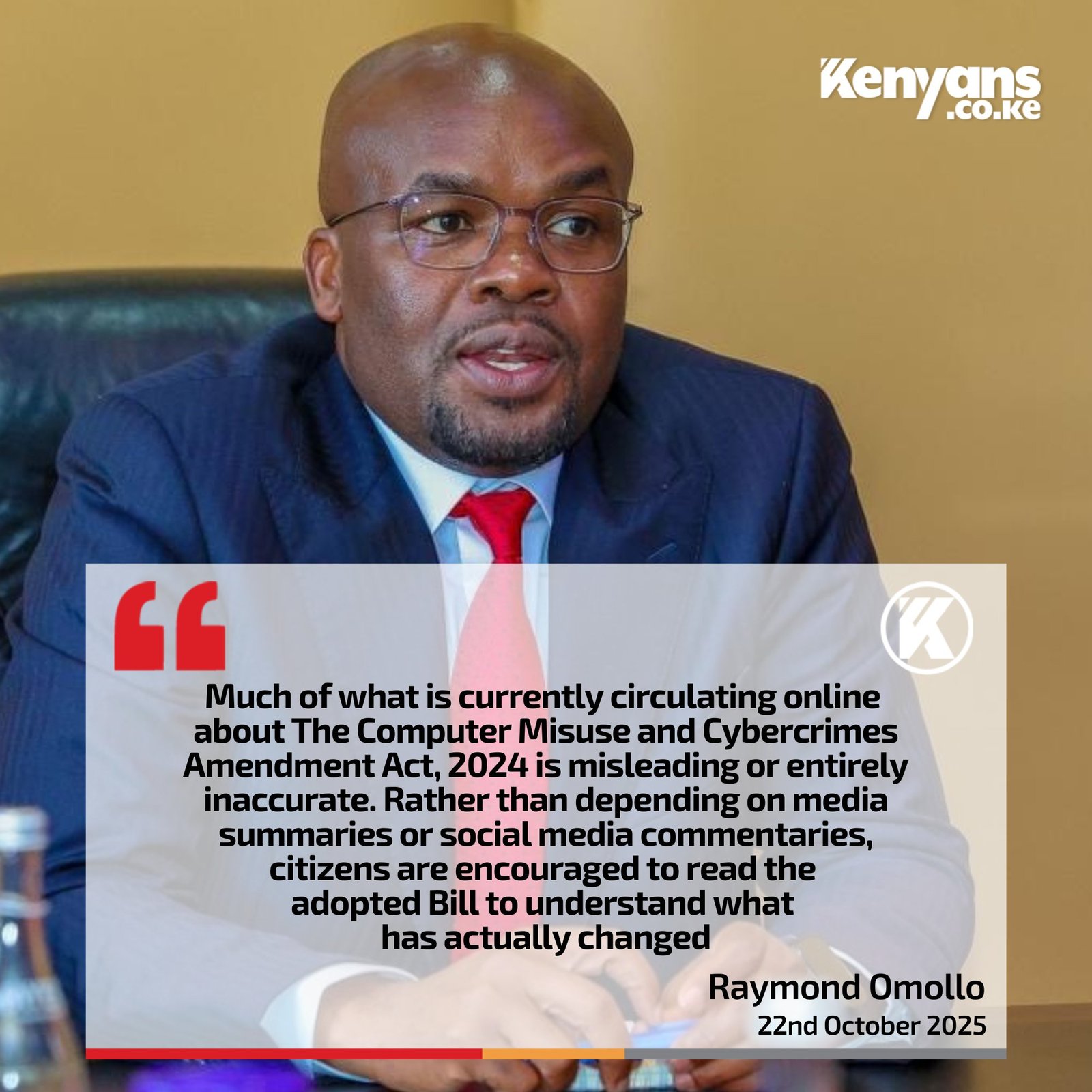
NAIROBI – In a dramatic 24-hour period, Kenya’s new computer law was enacted by the President and then halted by the High Court, plunging the nation into a heated debate over digital security, freedom of expression, and the power of the state.
President William Ruto signed the Computer Misuse and Cybercrimes (Amendment) Act, 2024, into law on October 15, 2025. The government hailed it as a vital tool for securing Kenya’s digital economy, introducing stricter penalties for offenses like child exploitation, cyberbullying, identity theft, and cyber terrorism.
However, just hours after its signing, the High Court suspended the law’s implementation. The suspension followed a petition by prominent activist Okiya Omtatah, who argued that the act’s provisions could violate constitutional rights to free expression. The court order puts the law on hold pending a full hearing of the case.
The Government’s Stance: A Necessary Shield for a Digital Nation
Senior government officials have vigorously defended the amendments. Interior Principal Secretary Dr. Raymond Omollo stated on social media that “much of what is currently circulating online about The Computer Misuse and Cybercrimes (Amendment) Act, 2024 is misleading or entirely inaccurate.”
He urged citizens to read the adopted bill themselves, rather than relying on media summaries or social media commentaries.
According to the official Memorandum of Objects and Reasons, the law is designed to:
· Prohibit the use of electronic mediums to promote terrorism and extreme religious and cultic practices.
· Empower the National Computer and Cybercrimes Co-ordination Committee (NC4) to issue directives to block websites and applications that promote illegal activities, child pornography, and terrorism.
· Expand the definitions and scope of existing offenses like cyber harassment and phishing.
· Introduce a new offense for unauthorized SIM-swap.
Dr. Omollo emphasized that the law is “progressive,” expanding the NC4’s mandate to combat severe online harms and even criminalizing actions that “drive victims to suicide.” He framed the law as indispensable for protecting citizens and fostering a “secure and trustworthy cyberspace” essential for the growth of Kenya’s Digital Superhighway.
Critics’ Concerns: A Weapon Against Dissent?
Despite the government’s assurances, the law has raised significant concerns among civil society groups and the public. Critics point to the broad and vaguely defined amendments as potential tools for suppressing dissent.
A key area of contention is the expansion of Section 27 on “cyber harassment.” The offense, which carries a penalty of up to 10 years in prison or a 20 million shilling fine, now applies to anyone whose communication “detrimentally affects that person.” Opponents fear this subjective language could be used to criminalize robust political criticism and free speech.
Furthermore, the new power granted to the NC4 committee to order the blocking of websites has sparked fears of internet censorship without sufficient judicial oversight.
The legal battle is set to continue, with the High Court’s suspension marking the first chapter in what promises to be a closely watched constitutional contest between state security and civil liberties in the digital age.








